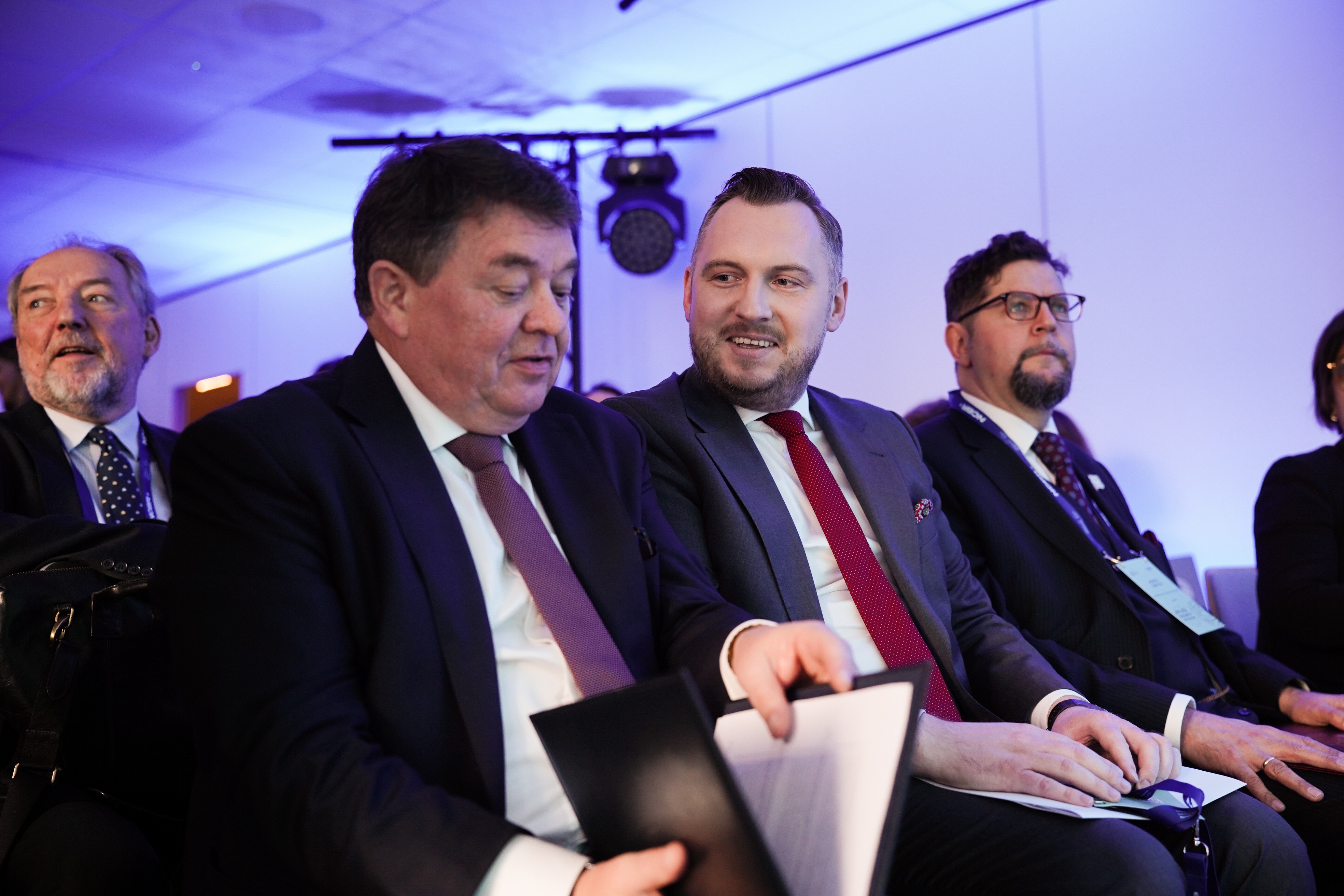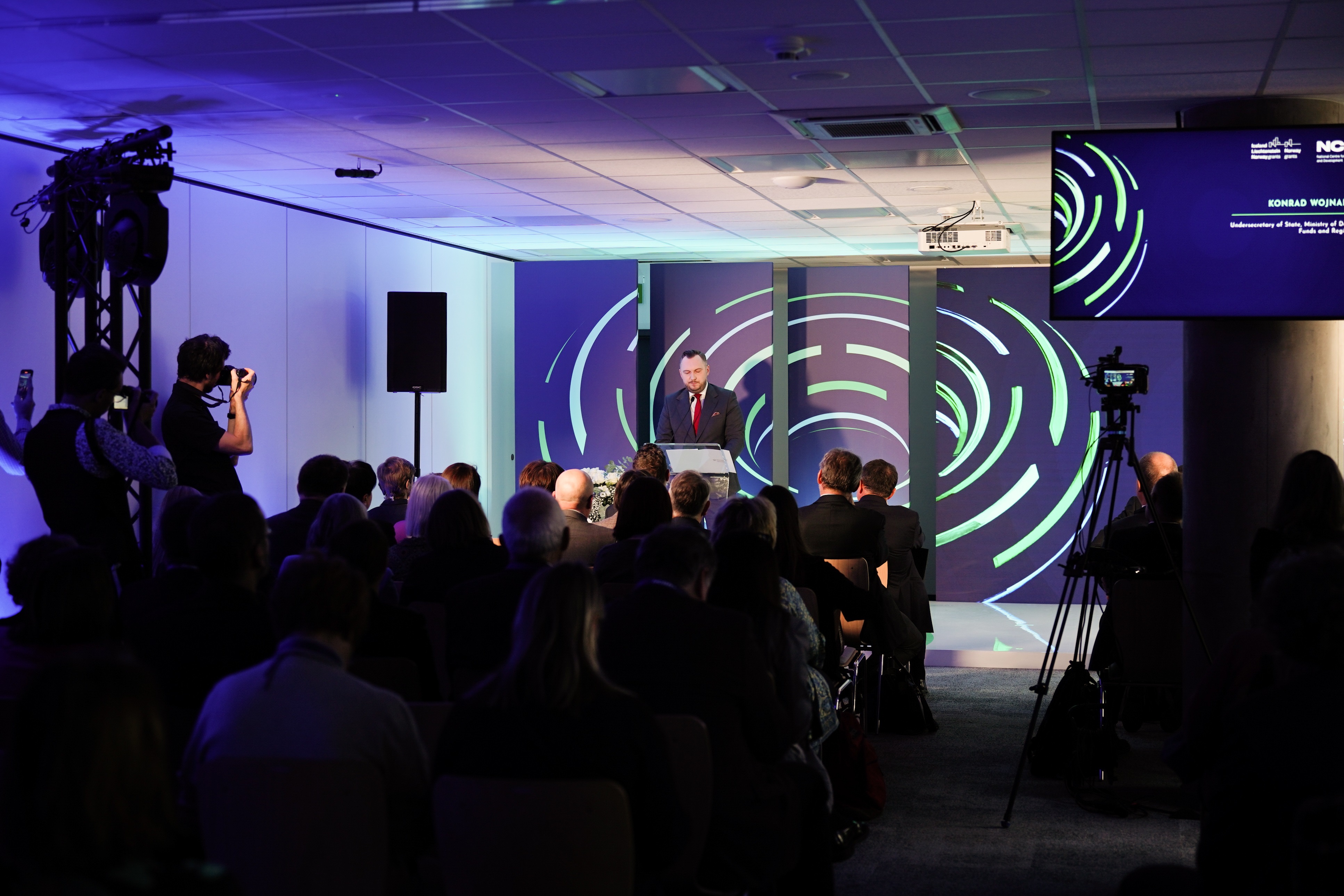EEA and Norway Grants have allowed for the development of international cooperation in the field of science for years. Thanks to calls for proposals within the Applied Research Programme, over 80 innovative projects involving approximately 1650 scientists were selected. The conference summarizing the implementation of the programme was attended by Deputy Minister Konrad Wojnarowski.
The programme was financed from the EEA and Norway Grants. In the programme, which is now ending, over 77.7 million euros (approximately 337.28 million PLN) were allocated to Polish-Norwegian projects. The programme has significantly contributed to the development of innovative solutions and technologies that have an impact on the economy and society.
 Norwegian Ambassador to Poland Øystein Bø and Deputy Minister of Development Funds and Regional Policy Konrad Wojnarowski
Norwegian Ambassador to Poland Øystein Bø and Deputy Minister of Development Funds and Regional Policy Konrad Wojnarowski
Calls for proposals and their effects
4 calls for proposals were announced:
- POLNOR 2019 - joint Polish-Norwegian research projects in the areas of: health and social care, industry and information technologies, energy, transport and climate, food and natural resources, social and economic development, unmanned vehicles;
38 projects were selected for funding in the amount of 49.7 million euros.
- POLNOR CCS 2019 - joint Polish-Norwegian research projects in the area of carbon capture and storage;
6 projects were selected for funding in the amount of 11.8 million euros.
- Idealab - groundbreaking, interdisciplinary research projects, competition topic: "Cities of the future: services and solutions";
6 projects were selected for funding in the amount of 10.5 million euros.
- Small Grant Scheme 2020 - a small grant fund for women researchers in applied engineering sciences;
31 projects were selected for funding in the amount of 5.7 million euros.
International Cooperation
"Strengthening international cooperation, tightening relations between Polish and Norwegian research institutions and enterprises is a key achievement of the Applied Research Programme. Thanks to funding from the Programme, numerous partnerships with research institutions and enterprises from Norway have been established. Joint research projects have also contributed to the exchange of experiences, resulting in innovative solutions" – said Deputy Minister of Development Funds and Regional Policy Konrad Wojnarowski.
 Deputy Minister of Development Funds and Regional Policy Konrad Wojnarowski talks about the implementation of the Applied Research Programme at the conference
Deputy Minister of Development Funds and Regional Policy Konrad Wojnarowski talks about the implementation of the Applied Research Programme at the conference
As Deputy Minister Wojnarowski emphasized, the programme additionally enabled support for Ukrainian scientists who, due to the war, could not continue their academic careers in their homeland.
"Although the program for 2014-2021 has come to an end, its effects will have a lasting impact on the future. The experience gained and the relationships established provide a solid foundation for the continuation of this program in the future, strengthening our vision of innovative international cooperation" – concluded Deputy Minister Konrad Wojnarowski.
During the conference, the possibilities of activities within the framework EEA and Norway Grants were presented, along with examples of completed projects and information about the next edition of the grants.
The event was attended by Polish and Norwegian scientists - beneficiaries of the programme, experts, representatives of government agencies and public administration. Conference participants discussed, among other things, how to build stable partnerships in application projects, how bilateral cooperation affects project outcomes, and what barriers there are to transferring knowledge from the academic sector to business, non-governmental organizations, and the public sector.
About the grants
The EEA and Norway Grants are a form of non-refundable foreign aid granted by Iceland, Liechtenstein, and Norway to several countries in Central and Southern Europe and the Baltic countries. Their main goal is to reduce economic and social differences within the EEA and to strengthen bilateral relations between the donor and beneficiary countries. In exchange for the financial assistance provided, the donor countries have access to the EU's internal market, despite not being members of the union.
Final conference of the ‘Applied research’ Programme

